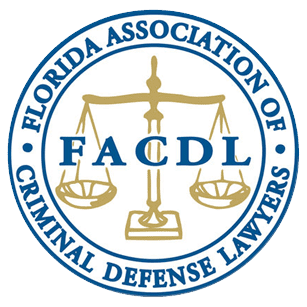Most people do not see being convicted of a DUI as an option. After all, they are careful, and being pulled over for driving drunk only happens to other people. The reality for many, however, involves being charged with and possibly convicted of driving under the influence. According to the Florida Department of Motor Vehicles (DMV), there were over 33,000 Florida DUI convictions in 2017.
If you have been arrested for a DUI, you may be worried about possible penalties. At Erika Valcarcel, Criminal Defense Lawyer, P.A., speak with a Sarasota DUI lawyer with years of experience in fighting for good people.
To find out how you can avoid the worst penalties for driving under the influence, call (941) 363-7900 now.
Fines and Probation for DUI
In Florida, being arrested for a DUI is not a guarantee for spending time behind bars. In fact, for many cases, assigning jail time may not even be on the judge’s radar. However, according to state law, the court may impose a jail sentence of six months for first-time offenders. If incarceration is being considered for your sentence, and if there is no way to avoid a criminal conviction, there may be options for damage control. Jail time may be avoided if you fight for your rights.
A skilled criminal defense attorney can fight for your interests in court. Whether it is achieved through courtroom statements or a plea agreement, a legal professional can get your criminal penalties dramatically reduced. One of the most common alternative sentences for a DUI is probation. This involves being released from police custody under strict supervision. While on probation, a person must adhere to a number of requirements, such as mandatory counseling and regular drug tests. This penalty is commonly paired with legal fines.
DUI Courses, Community Service, and License Revocation
One penalty that might substitute for jail time is a DUI course. These courses cover topics such as alcohol dependency, safe driving practices, and the consequences of roadway accidents that are caused by drunk driving. Once you complete this program, you are given a certificate as proof.
Another common consequence of driving under the influence is community service. In Florida, the standard community service penalty is 50 hours. However, sentences may exceed this minimum.
One of the most devastating consequences for a DUI is a license suspension or revocation. While technically less harsh than time in lockup, this restriction makes day to day functions all but impossible. Getting anywhere becomes a challenge, from going to and from work to meeting with family. For a first offender, the minimum license suspension program is 180 days. In some cases, successful completion of a DUI education program can result in your license being reinstated.
Electric Monitoring and Treatment Programs
When facing a DUI conviction, it might also be possible to fight for Electronic Monitoring (EM). Instead of being sent away to sit in a cell, the court may find it more appropriate to equip the accused with an electronic GPS device. When compared to jail time, the benefits of this penalty are numerous. For one thing, EM allows for travel to and from work. With incarceration, you may have to quit your job entirely. This consequence is also beneficial for the justice system. They do not need to pay for incarceration, and they are able to monitor your whereabouts at all times.
If you have been charged with driving under the influence, the best possible consequence you could hope for is drug or alcohol rehabilitation program. In many cases, these programs do not include any additional penalties, such as fines or probation. Participation in a drug or alcohol program is also favorable for everyone involved. Rehab addresses the real issue at hand, whether it be alcoholism or problems with substance abuse.
How Erika Valcarcel, Criminal Defense Lawyer, P.A. Can Protect Your Rights
If you are being accused of driving while intoxicated, there are a number of defenses that a skilled lawyer can use to get your charges reduced or dismissed. One effective strategy is proving that your civil rights were in some way violated. You may not have been read your Miranda rights. It might also be the case that there was no probable cause for your arrest. This might be the case if you refused a breathalyzer or if you were immediately arrested. It is also possible that the officer had no good reason for pulling you over in the first place.
If you need legal representation, or if you simply have questions about your case, call Erika Valcarcel, Criminal Defense Lawyer, P.A. today at (941) 363-7900 today.


